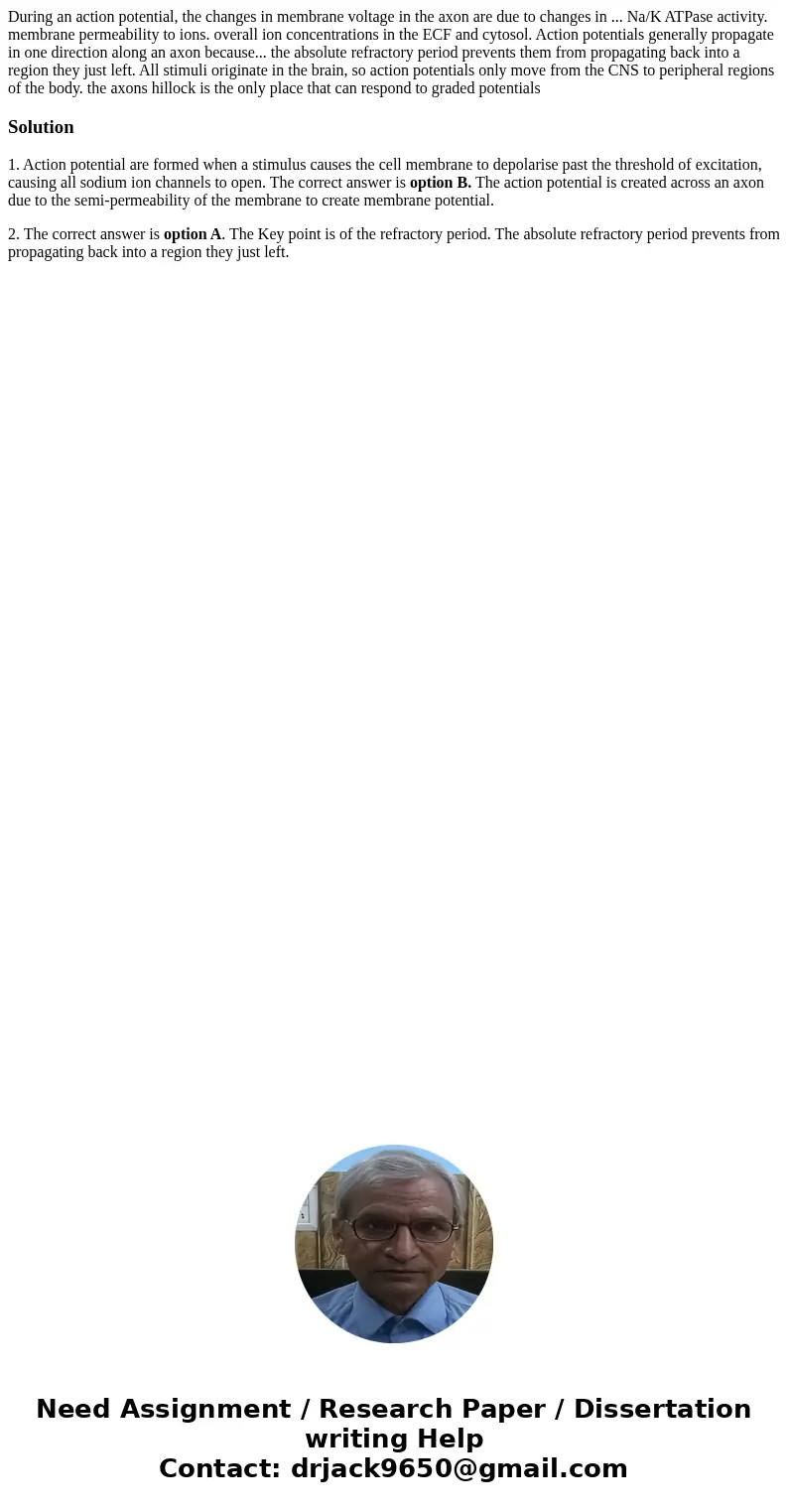During an action potential the changes in membrane voltage i
During an action potential, the changes in membrane voltage in the axon are due to changes in ... Na/K ATPase activity. membrane permeability to ions. overall ion concentrations in the ECF and cytosol. Action potentials generally propagate in one direction along an axon because... the absolute refractory period prevents them from propagating back into a region they just left. All stimuli originate in the brain, so action potentials only move from the CNS to peripheral regions of the body. the axons hillock is the only place that can respond to graded potentials
Solution
1. Action potential are formed when a stimulus causes the cell membrane to depolarise past the threshold of excitation, causing all sodium ion channels to open. The correct answer is option B. The action potential is created across an axon due to the semi-permeability of the membrane to create membrane potential.
2. The correct answer is option A. The Key point is of the refractory period. The absolute refractory period prevents from propagating back into a region they just left.

 Homework Sourse
Homework Sourse